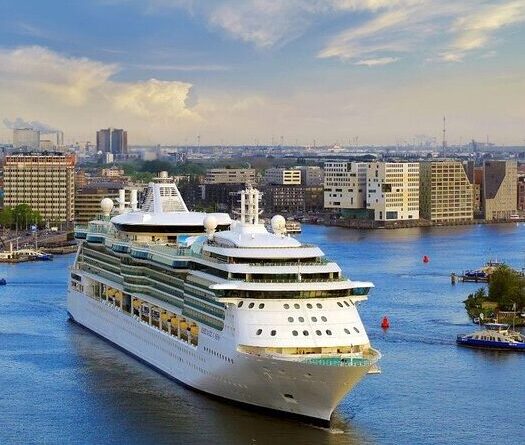By Peter de Langen
Amsterdam’s city council has approved a plan to ban cruise from Amsterdam’s city center. Another bold move from a port that some years ago took the decision to phase out the handling of coal by 2030. While I was (in a previous column in Port Strategy) and continue to be positive about the decision on coal, in my view the ban on cruise is shortsighted. For very understandable reasons, Amsterdam aims to reduce the negative impacts associated with tourism. But negative effects from tourism are not a given, and they certainly are not similar across all tourist types. Amsterdam’s core tourism problem is that it attracts large numbers tourists attracted by the prospect of ‘drugs and drinking’. Banning cruise does not help addressing that problem at all. Furthermore, banning cruise ships will certainly result in cruise calls in other cities (mainly Rotterdam and Ymuiden) with bus excursions to Amsterdam, while a mere 3% of all Amsterdam’s tourists arrive with a cruise, so the decision is hardly material in reducing tourism numbers in Amsterdam.
Amsterdam’s decision was also justified by rightly pointing out that the cruise tourism industry is not environmentally sustainable. This is where in my view the missed opportunity kicks in. Why not ban polluting ships only, while welcoming environmentally sustainable cruise calls if they submit a realistic plan to make sure the cruise activity in Amsterdam in environmentally and socially sustainable, for instance through zero-emission daytrips spread out over the city, to avoid overcrowding of tourism hotspots? Amsterdam is such an attractive destination that this could affect cruise lines decisions. And why not seek alliances with other ports in the same destination market, like Oslo, Copenhagen or Hamburg, to establish a coalition of port cities leading the transition towards sustainable cruise tourism? In such an approach, cruise would not be ‘labelled’ as intrinsically ‘bad’, but instead, Amsterdam would use its attractiveness to drive change in the right direction. Of course, more work would have to be done on the feasibility and spatial implications of such an approach, but an outright ban without much consideration of potential alternatives is in my view shortsighted.
First published in The Analyst column @PortStrategy.












